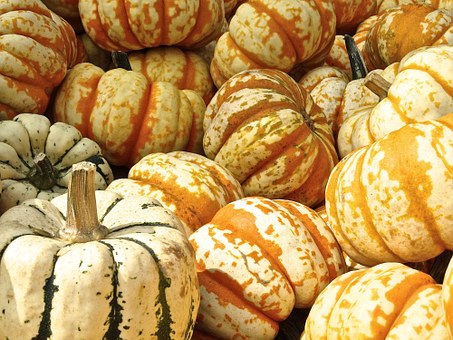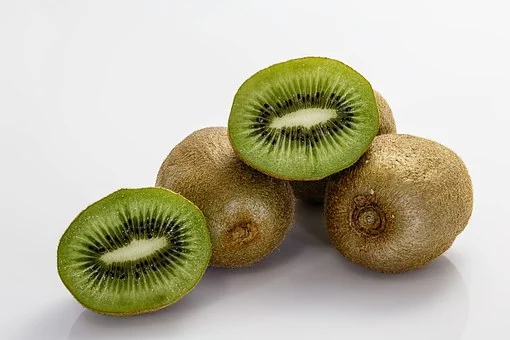Pumpkins are typically fruit, but it is most often used as a vegetable. It is among the underrated foods, but actually, pumpkin is a healthy, nutritious, low-calorie, sustainable food. Pumpkins are widely cultivated in India, China, Ukraine, Russia, and the united states, for a long time. It is a popular vegetable in India and is usually grown during the rainy season. This vegetable is packed with vitamins and minerals and is easy to prepare that is why pumpkin deserves a place on your platter.
Pumpkin belongs to the Cucurbitaceae family, is one of the widely grown oldest plants, known as squash. They are usually a type of botanical berry, yellow-orange color, and weigh 3 to 7 kg. Its fruit outer covering is hard, which inside contains pulp and seeds. It is chiefly loaded with vitamin C, K, E, protein, minerals, and carotenoid pigments, including beta-cryptoxanthin, alpha, and beta carotene. Pumpkin is mostly used for food, recreational and aesthetic purposes.
Pumpkins are also commercially canned for puree and pie fillings.
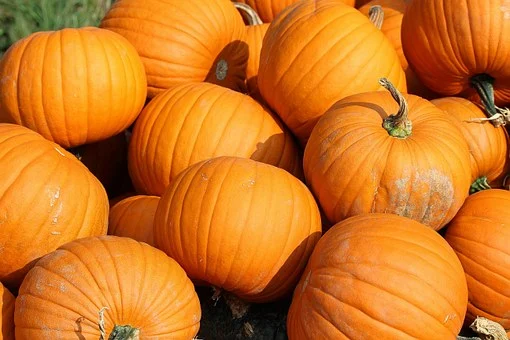
Edible parts of the pumpkin
Pumpkins are majorly used for food, more than medicinal purposes. The edible part, such as fruit, seeds, leaves, seeds oil, and flowers are loaded with essential nutritional perks.
- Pumpkin seeds – also known as pepitas are usually covered by a white husk. Seeds are edible, small, flat, green, and rich in nutty flavor. These seeds are a great source of oil, protein, magnesium, zinc, potassium and are low in phytic acid.
- Pumpkin seed oil- the pumpkin seeds are rich in oleic acid and alpha-linolenic acid. Pumpkin oil improves urinary disorders, cholesterol, and heart health. When applied topically on the skin and hair, it gives beneficial effects.
- Pumpkin fruit- it has various culinary uses, it can be steamed, dry, boiled, roast, and mashed for food preparation.
- Leaves- pumpkin leaves are used in varieties of dishes but majorly in Korean cuisine vegetables.
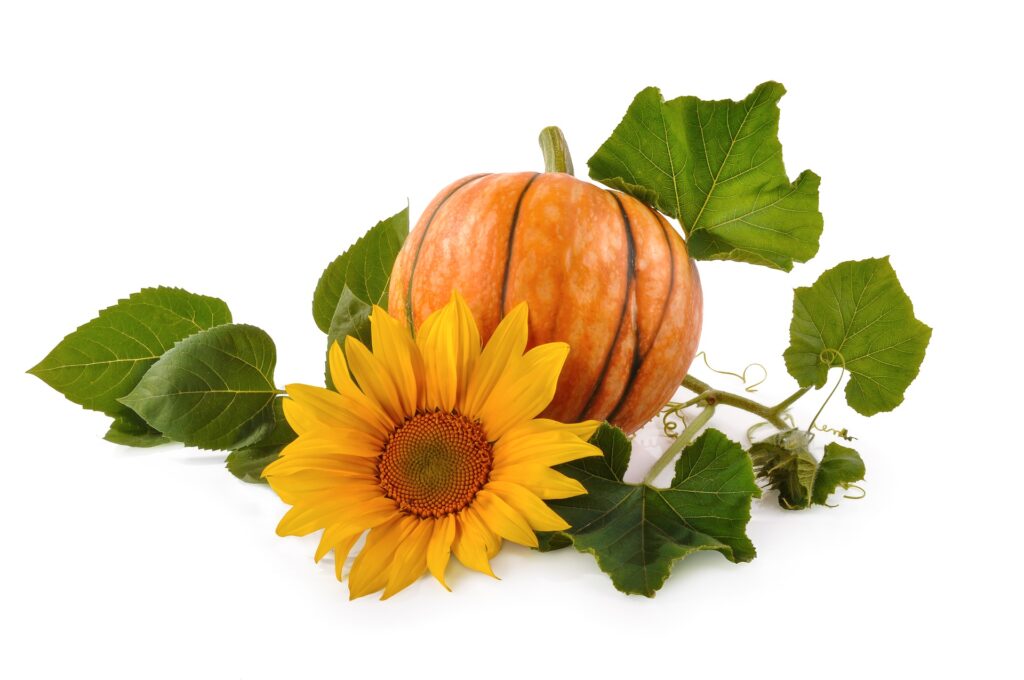
Nutrients present in pumpkin:
This simple pumpkin vegetable is not only high in nutrition but also has cultural importance. 100 g of raw pumpkin provides food energy and is an excellent source of vitamin A and pro-vitamin A beta-carotene.
- Dietary fiber
- Protein
- Vitamin A
- Phosphorous
- Vitamin B
- Calcium
- Magnesium
- Vitamin E
- Potassium
- Vitamin C
- Iron
- Vitamin K
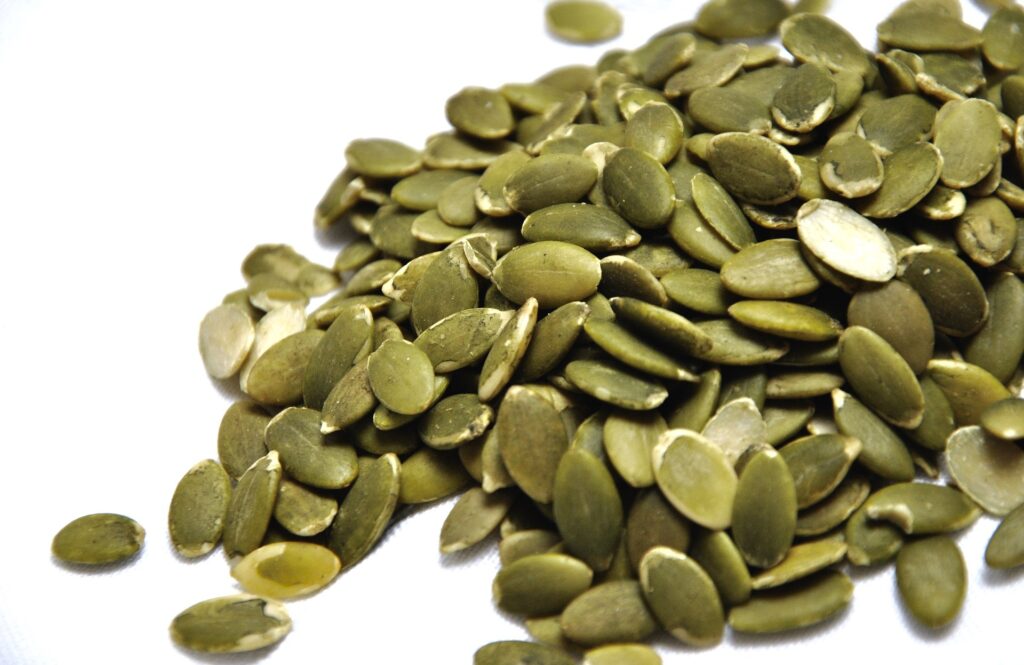
Health benefits of pumpkin:
Pumpkin is a simple basic food with impressive nutritional value. Including it in your diet daily can support your health in so many ways. Here is everything you need to know about its health benefits:
Prevent chronic diseases
Pumpkin is an excellent source of an antioxidant such as beta carotene, alpha-carotene, and beta-cryptoxanthin. Including it in your diet may help your body get rid of harmful free radicals. Scientifically, free radicals are linked with chronic diseases like heart diseases, cancer, diabetes, arthritis, inflammatory diseases, etc. Pumpkin neutralizes these free radicals and decreases the damage done by free radicals.
Boost immunity
The expert believes that vitamin A and vitamin C increases WBC production and reinforces the immune system. Thus, pumpkin plays a significant role in boosting the immune system.
Help in healthy weight loss
A high-fiber food can assist with controlling craving that leads to a feeling of fullness for a longer duration and thus limits unwanted eating. Moreover, pumpkin is a low-calorie, nutrient-rich food that’s why it is considered a good diet food.
However, plant-based food makes weight loss easy to achieve, but it can also heal your body internally.
Great for heart health
Pumpkins are high in potassium, magnesium, and sodium, which are great for maintaining the electrolyte balance of the heart. Studies believe that eating potassium-rich food can lower blood pressure. Further, they contain soluble fiber, which helps in lowering bad cholesterol. Thus, decreasing the chances of a heart attack.
Promote skin glow
Pumpkin contains nutrients like vitamin C, riboflavin, Vitamin A, and folate, which increase blood flow and helps in treating skin break out. Likewise, it contains essential minerals such as zinc and potassium, which minimizes skin inflammation and itchiness. Antioxidants, vitamin C, and A are also great for the skin.
Controls blood sugar
Pumpkin is a great food option for blood sugar patients as it is rich in fiber, which manages blood sugar. Pumpkin reduces the risk of diabetes by managing weight, energy levels. Although, commercially prepared pumpkin products are rich in added sugar, which can decrease the beneficial effects of pumpkin.
Pumpkin diet per day
Pumpkin is one of the well-known edible food. It has various health benefits and rarely shows any side effects. One cup of pumpkin provides you 50 calories, 0.19 fats, 1.9g protein, vitamin A 86, 12g carbs, and 2.6 fiber.
Who should not eat pumpkin?
- Pumpkin is generally considered healthy. However, it may cause side effects in some people. Have pumpkin seed and oil in moderation as it may cause stomach discomfort, diarrhea, and nausea, rarely.
- Although pumpkin is mildly diuretic means more urge to pee, which is completely normal but with some medication such as lithium, it may cause serious side effects.
- Pumpkin-based food such as lattes, pie feelings, and candies are rich in added sugar. They are not as healthy as compared to fruit.
- Even though, pumpkins are incredible for you, they contain a lot of fiber. This could make gas in people who are not used to a fiber-rich diet.
How to add pumpkin to your diet?
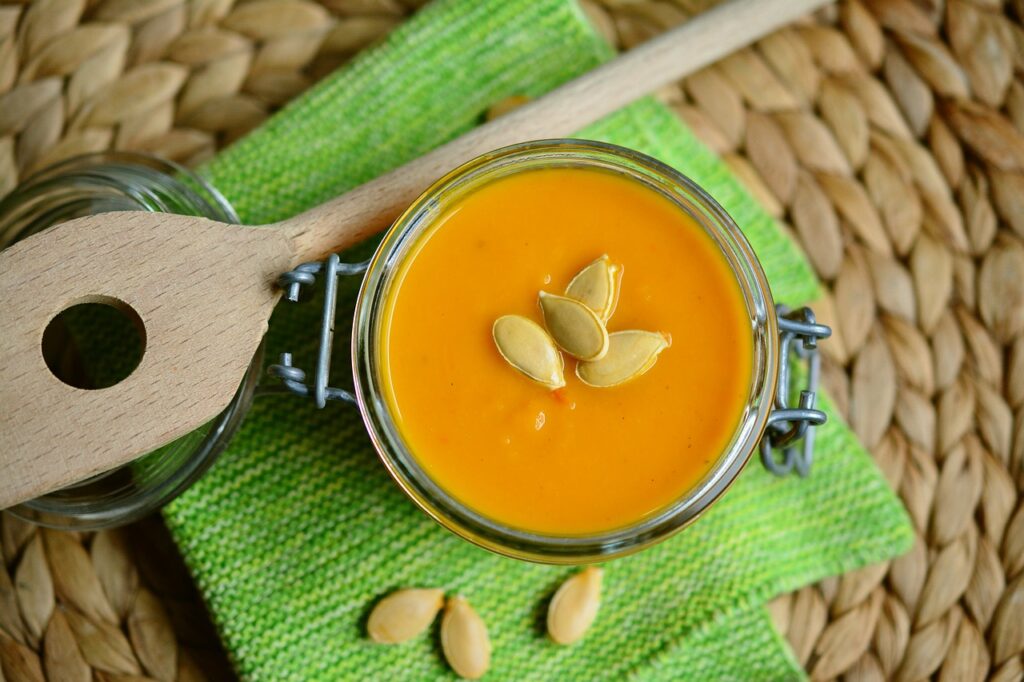
Cutting the pumpkin could be tricky as its outer shell is hard. but its seeds, leaves, fleshy shell makes it a popular food, you can steam, dry,roast, mash or boil pumpkin for food preparation. It shows various properties such as antidiabetic, immune modulator antihypertensive, antitumor activity.
With pumpkin, you can make different dishes. Here are some easy and tasty ways to eat pumpkin:
- Pumpkin smoothies
- Oats pumpkin pancakes
- Pumpkin soup
- cereal bakery products
- Desserts
- Pumpkin pancakes
- Bread preparation
- Pumpkin stews
